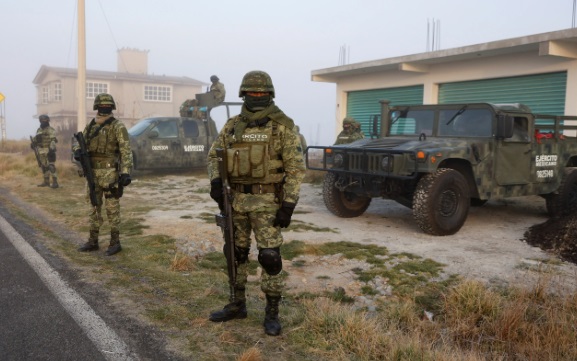The Trump administration has started detailed planning for a new and secretive Mexico mission that would send American troops and intelligence officers into Mexico to strike directly at powerful drug cartels. According to two current and two former U.S. officials, this mission could mark one of the most aggressive anti-cartel operations ever planned by Washington.
U.S. Begins Early Planning for Mexico Mission Against Cartels
Officials say that training for this potential Mexico mission has already begun. It would include ground operations inside Mexico, although the actual deployment is not yet imminent. Officials are still discussing how large or aggressive the operation should be, and they have not yet made a final decision.
The Joint Special Operations Command (JSOC), known for handling high-risk missions, will provide most of the troops for the operation. The U.S. intelligence community will control the Mexico mission under Title 50 authority, allowing officials to conduct covert operations and keep them secret from the public. U.S. officials also expect CIA officers to participate in the mission.
This new Mexico mission represents a major shift from past U.S. strategies. Traditionally, the U.S. has supported Mexican forces with training and intelligence sharing but avoided taking direct military action inside Mexico. If approved, this operation would open a new front in Trump’s fight against drug cartels, expanding beyond the strikes already taking place near Venezuela.
Officials said the administration would likely keep any actions under this Mexico mission classified and avoid publicly announcing them, following its pattern of secrecy in previous anti-cartel operations.
Drone Strikes and Covert Tactics Planned Under Mexico Mission
Current and former U.S. officials said the U.S. is planning a new mission in Mexico that will use drones to target drug labs, cartel leaders, and key members of criminal organizations. Some of the advanced drones require on-ground operators, which may lead to the presence of U.S. troops inside Mexico for accurate and safe operations.
The Trump administration has previously carried out similar drone strikes near Venezuela, targeting boats suspected of drug trafficking. Officials claim those operations killed 64 individuals linked to groups like Tren de Aragua, now designated a terrorist organization. However, U.S. authorities have not released evidence about the identities of those killed or the cargo on the vessels.
Trump pushed for U.S. military strikes while CIA quietly armed Mexico’s anti-cartel forces
In February, the State Department classified six Mexican cartels, MS-13, and Tren de Aragua as foreign terrorist organizations. This designation expanded the CIA’s and military’s legal powers to conduct espionage and covert missions, including the developing Mexico operation.
Trump has confirmed authorizing CIA operations in Venezuela and suggested similar covert missions could occur in Mexico. Officials stress that, unlike Venezuela, the Mexico operation is not aimed at destabilizing the government but at dismantling cartel structures threatening U.S. citizens.
A senior U.S. official said the administration is pursuing an “all-of-government approach” to address cartel threats. The CIA and Pentagon declined to comment, and the White House has not shared operational specifics of the Mexico mission, which remains under preparation.
Mexico’s Response and Diplomatic Reactions to the Mission
Reports of a potential U.S. mission in Mexico have sparked concern in Mexico City. President Claudia Sheinbaum firmly rejected any form of foreign intervention, saying Mexico will cooperate with Washington but will not surrender control of its national security.
Despite this stance, her administration has worked with the CIA by permitting expanded surveillance flights initiated under the Biden administration. Mexico has also sent 10,000 troops to its northern border, increased fentanyl seizures, and extradited 55 senior cartel members to the U.S.
President Trump has claimed that parts of Mexico are “run by the cartels,” though he maintains respect for Sheinbaum’s leadership. U.S. officials have stated they prefer cooperation but have not ruled out unilateral action if coordination fails — a move that could strain diplomatic relations over sovereignty and border control.
The broader anti-drug effort, which includes drone strikes in the Caribbean and Pacific, is part of Trump’s national security strategy against narcotics trafficking. He argues that traditional enforcement measures have failed to curb the deadly flow of drugs into the U.S.
The Mexico mission is described as one of the most secretive and aggressive anti-cartel initiatives ever considered by Washington. Officials say the operation will remain classified throughout its execution, with any public acknowledgment coming only afterward. The Trump administration views it as a signal to drug cartels across the Western Hemisphere that the U.S. is ready to strike — by air, sea, or inside foreign territory — to dismantle their networks.
